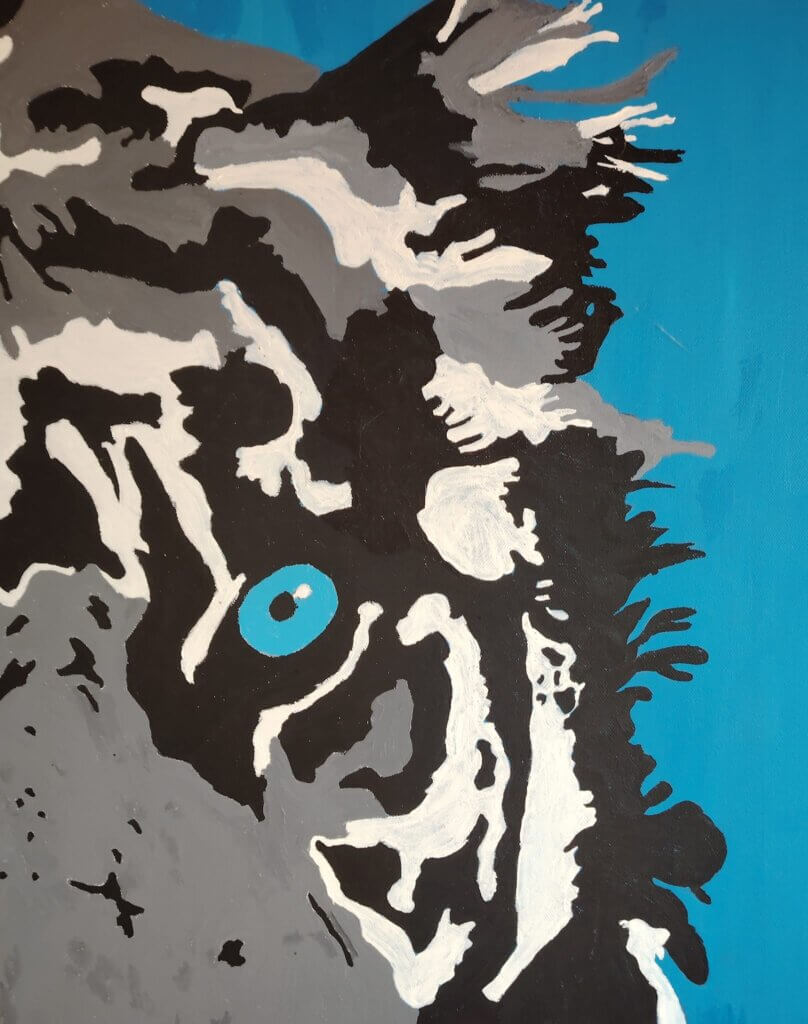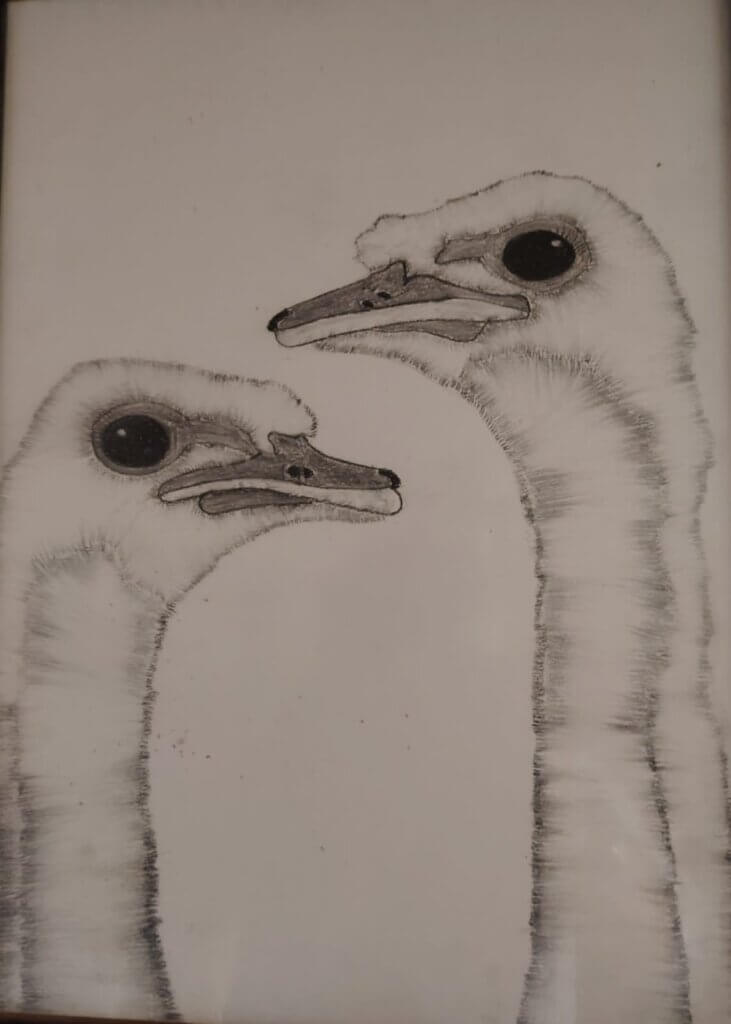Study, art, and animals: How Marisa finds purpose with PH
Marisa Evetts, 51, lives in Crewe in Cheshire with her husband and pets – the family she credits for keeping her going through challenging times. Completing online courses and indulging her love of drawing keeps her busy and fulfilled, as she explains…
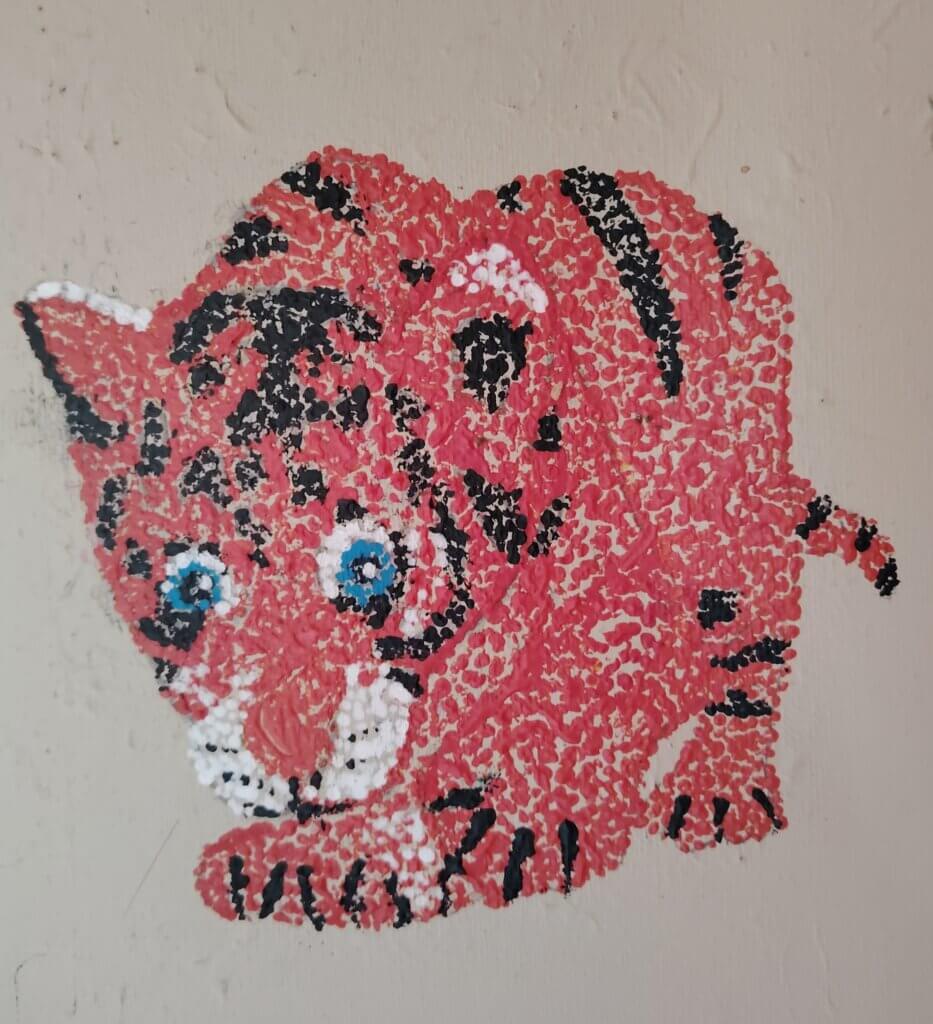
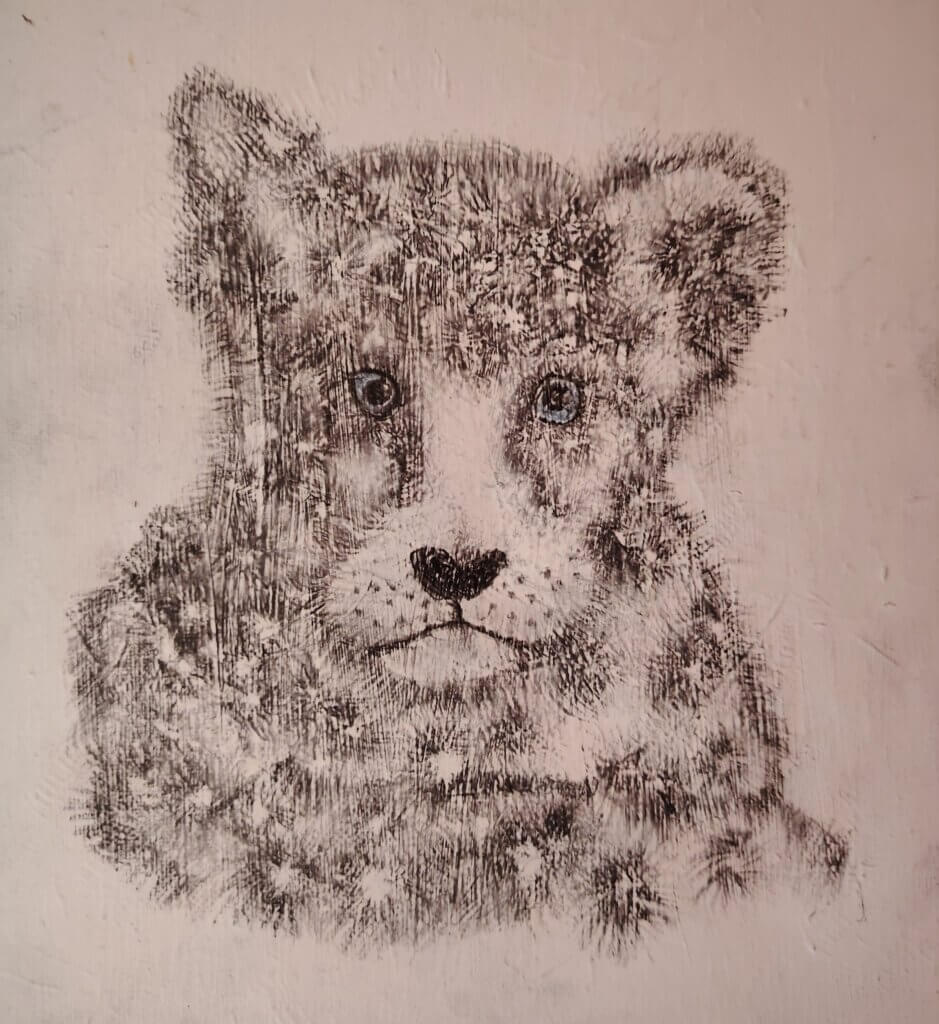
“It all started around Christmas 2010. I was having difficulty getting up and down stairs, I was getting out of breath, and I put on a bit of weight. I went to the doctors, but they didn’t think there was anything to worry about, so I just tried to carry on.
I got progressively worse, to the point where I blacked out trying to get to the toilet. An ambulance was called, and at the hospital, they thought I had a chest infection. Eventually they decided to give me a scan, which showed I had blood clots across my pulmonary arteries, and I was told I needed to have immediate open-heart surgery to remove them. If it didn’t happen straight away, they said, I wouldn’t be around by the morning.
The surgery took over five hours and when I came to, doctors said they’d never seen such a huge clot, and they couldn’t believe I’d had no symptoms prior to it getting that bad. They thought it must have been caused by a fall, or a long flight – neither of which I’d experienced.
I was discharged and expected that to be it, but five months after the surgery, in June 2011, I found myself out of breath again at one of my check-ups.
My oxygen saturations had dropped, and another clot was suspected, so I was admitted to hospital. They promised me they would get to the bottom of it, and I was told I had suspected chronic thromboembolic pulmonary hypertension (CTEPH). This was confirmed by a right heart catheter test at a specialist centre, and I have been living with the diagnosis ever since.
I was previously healthy, so this all came out of nowhere. It was all such a shock, and ‘life-altering’ is the only way to describe it. I felt so much better after the surgery, then I went backwards again, and then I found out I had CTEPH. It was very difficult to get my head around.
Adapting to an altered life
I’ve been on treatment for PH for 13 years now. These days, as well as taking oral medication, I’m on oxygen 24/7 too.
I’m in a wheelchair most of the time, and I have to use a commode because I get too out of breath trying to get to the toilet.
It’s a challenge, but my specialist centre team have been so good. They treat me as a whole person and that has made such a difference over the years.
They explain everything to my husband Paul, who I’ve been married to for 20 years, and involve him fully in my care. He’s my carer, even though he still works full time. He works from 6.30am until 4.30pm, and then he does the housework, cooking, and washing and ironing.
I can’t even get myself in and out of bed by myself. He has to help me with all of that; he supports me in absolutely everything.
My husband says that without Emphasis magazine, he would have been lost. He gets so much from every issue. He says if it wasn’t there, he wouldn’t know how to word things, or what to do.
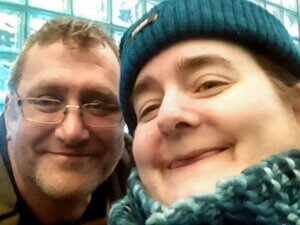
I don’t feel like I’m a ‘proper wife’. I feel that a wife should look after her husband and have dinner on the table when he comes home from work, but I can’t do any of that. I feel guilty sometimes that I should be doing more.
We don’t have children, because as soon as I was diagnosed with the PH, we were advised not to get pregnant. That was very difficult to come to terms with, as when we got married, all I wanted was children.
We have two cats (Lunar and Stormy) and a dog (Harley) and they have helped immensely. I call them my ‘fur babies’. They are my little family, and they know when my PH is playing up.
When things are bad, they will curl up on my lap and put a paw on my hand, and it’s their way of saying “I know you’re struggling today”.
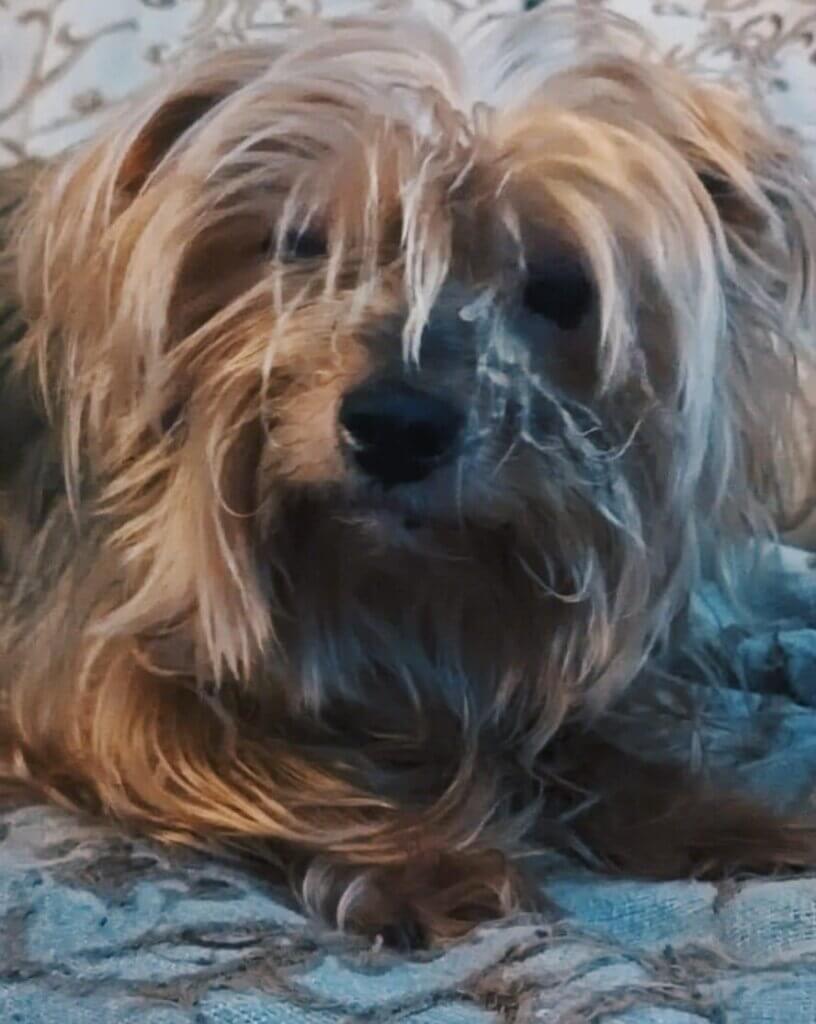
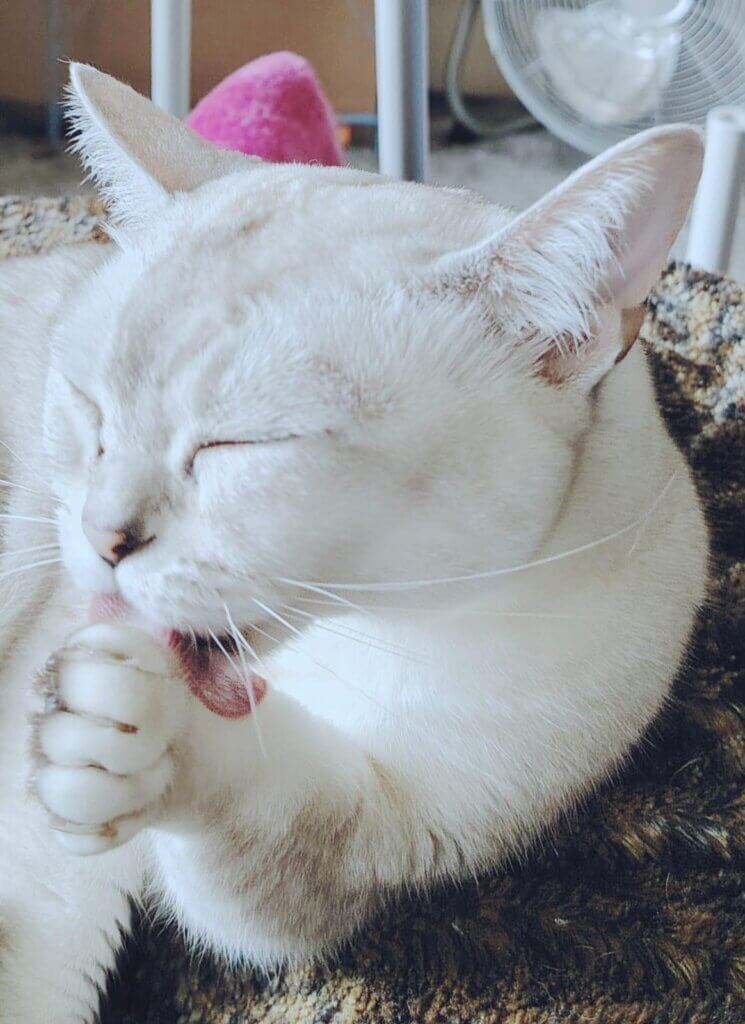
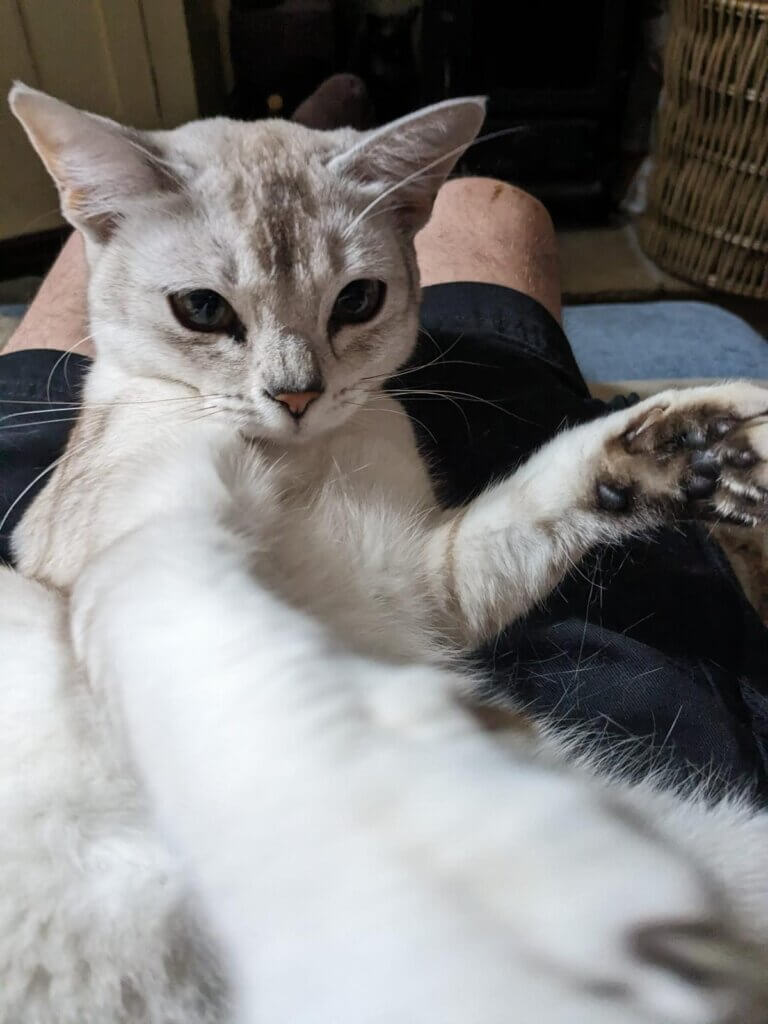
Getting creative and challenging my mind
Because Paul goes out to work full time, I spend a lot of time on my own, but the animals help, and I try to keep myself busy.
I do Open University courses (online accredited courses that are completed from home). Through them I’ve studied big cats – which I even got a degree in – and I’ve done seven or eight courses in total, all related to animals. The Open University are very understanding of my disease and how it affects deadlines. I’m always upfront with them about my challenges.
Completing these courses gives me such a sense of achievement. It shows that although I might be limited, there are still some things I can do.
I also do a lot of drawing and painting, usually of animals, and I’ve done ones for my specialist team too.
My husband and my animals are what keep me positive. Paul has given up so much for me, that if I was to give up on myself now, that wouldn’t be fair.
Throughout everything over the last 14 years, I’ve learned that I’m stronger than I thought I was. I can achieve things if I put my mind to it, and I can rely on myself – even though I never thought I could.”
